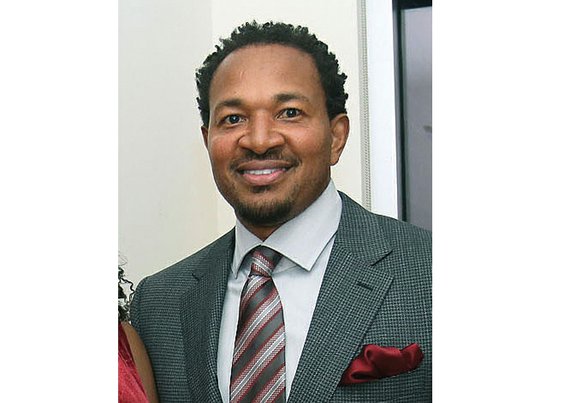‘Something bigger than myself’
5/20/2016, 10:15 p.m.
Harry Watkins
“We’ve got a justice gap when too many black boys and girls pass through a pipeline from underfunded schools to overcrowded jails … Black men are about six times likelier to be in prison right now than white men.”
Those words rang in my ears and lingered in the air like a heavy, heavy fog that morning. As I stared at President Obama, I kept repeating to myself, “Right now?”
I had a lot to be proud of on that recent day, in that moment. Here I was, sitting in the front row of a commencement, about to be hooded after earning my Ph.D. in political science from the Mecca, Howard University. In a setting where the largest gathering of black scholars in the world convene to teach, nurture, support and to advance the goal of eliminating inequities related to race, color, social, economic and political circumstance, I was about to join their ranks.
I found myself sitting so close to actress Cicely Tyson, Dr. L.D. Britt of Eastern Virginia Medical School in Norfolk, Ambassador Horace G. Dawson Jr. and President Obama, all of whom would receive honorary degrees, that I could see laugh lines on their faces. And, as if things couldn’t get any better, I knew my wife, Arvat, was among the crowd, thinking of me as I was thinking of her. Also, knowing that our moms and one of our best friends were all sharing the same space with me, I realized another defining moment in my life was occurring.
President Obama’s remarks, an acknowledgement of an unjust circumstance for black men, spoken by the first African-American president of the United States at one of our country’s most notable HBCUs, was not lost on me. The message spoke volumes. In that moment, I felt the president’s words were a personal message to me and that I had arrived at a place along a path that was bigger than myself.
In a moment that seemed to stretch on for a while in my mind, memories of my childhood home in the public housing section of Jackson Ward on Hill Street in Richmond reminded me of how close to home President Obama’s remarks came. I saw the faces of all the kids from my community who had not made it out of the projects, out of their teens or out of our collective circumstances.
I thought about the guys in middle school who would later, as adults, spend large amounts of time in jails and prisons and hooked on drugs. As a child who took unnecessary risks and sought out trouble, I easily could have taken a rocky path.
I remember clearly the political and cultural climate of Richmond in the late 1970s, the struggles of black families and communities, when education was touted by our teachers and parents as our path to the future, a path many of us did not believe was accessible and others found completely unwelcoming.
Sitting at the commencement, I realized that somehow I successfully had navigated the crossroads of what could have been and what was. I could have easily remained on the path that includes a continued history of generational poverty and being comfortable in a community where drug and alcohol abuse, as well as frequent episodes of domestic violence within and outside of the home, was commonplace.
But in that moment, I realized that those experiences had prepared me for this life’s path, prepared me for my efforts as a social worker on behalf of at-risk children and families and prepared me for the work I would do in my current capacity at the Congressional Black Caucus Foundation Inc. In that moment, I knew I was led to this path by something greater than myself.
But this day did not come my way because I acted alone or made all the right choices. I had mentors — many mentors — some of whom would never know that they were serving in those roles. I had teachers and school administrators in Richmond Public Schools who encouraged and watched over me, parents who believed in my abilities, good friends and siblings who celebrated every milestone I achieved with the same sense of pride that I took in my own accomplishments.
I have had role models, the likes of whom would argue the unconstitutional merits of segregated schools before the U.S. Supreme Court and would later become an associate justice of the same court; our nation’s first elected African-American governor; Richmond’s first African-American mayor; and a host of African-Americans whose legacies continue to inspire legions today.
I watched them all and I learned from their examples. When I came upon that fork in the road, I was able to choose and to follow a path toward something bigger than myself.
In that moment at Howard University’s commencement, I realized more than ever that I am here to widen the path so that little black boys and girls do not have to be “lucky” to stumble upon it, but rather, they can choose the path that they want simply because it is their right to do so.
The writer is a senior research and policy analyst for the Congressional Black Caucus Foundation in Washington.







